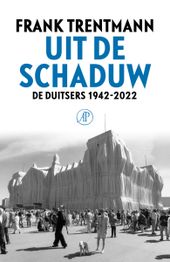
Out of the Darkness: The Germans 1942-2022
In his new book Uit de schaduw (Out of the Darkness), historian Frank Trentmann tells the dramatic story of the German people from World War II until the fall of the Berlin Wall and the struggle to find a place in the world today. It is a story of ‘moral renewal’ towards a democratic society and a groundbreaking new view on modern Germany. This afternoon, we will discuss the book with the author.
In 1945, Germany lay in ruins, morally and materially. Its citizens stood condemned by history, responsible for a horrifying genocide and war of extermination. But by the end of Angela Merkel’s tenure as chancellor in 2021, Germany looked like the moral voice of Europe, welcoming more than one million refugees, holding together the tenuous threads of the European Union, and making military restraint the center of its foreign policy. At the same time, Germany’s rigid fiscal discipline and energy deals with Vladimir Putin have cast a shadow over the present. And recently, regional successes of right wing AfD pose new questions on Germanys political trajectory. With Frank Trentmann we will engage in a conversation about the central question in the book: How did a nation whose past has been marked by mass murder, a people who cheered Adolf Hitler, reinvent themselves, and how much?
About the speakers
Frank Trentmann is Professor of History at Birkbeck, University of London and at the University of Helsinki. He is the author of Empire of Things and Free Trade Nation, among others, and has received several awards including the Humboldt Research Award and the Bochum Historians’ Award. He grew up in Hamburg and lives in London.
Krijn Thijs (moderator) is a historian at the Duitsland Instituut Amsterdam where he coordinates the DAAD-Graduiertenkolleg and organizes workshops and lectures. He teaches History and Germany Studies at the University of Amsterdam. His research focuses on the modern history of Germany and the Netherlands, with a special interest in transfer and conflict, in historiography and memory, and in contemporary Berlin.

:rgb(-15)

:rgb(-25)

:rgb(8)
